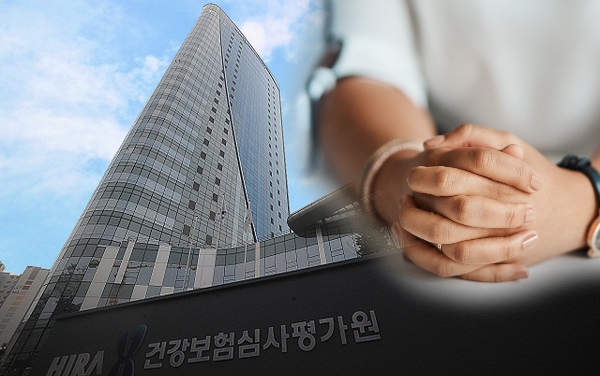
Several targeted agents for lung cancer approved through fast-track review due to their innovativeness and urgency of diseases have become useless faced with the wall called the “insurance benefits.”
That’s because seven targeted therapies targeting rare genetic mutations to treat non-small cell lung cancer (NSCLC) that have won approval over the past one-and-a-half years through the fast-track procedure remain on the “non-reimbursement” list.
Beginning with Novartis’ MET inhibitor Tabrecta (capmatinib) and Merck’s Tepmetco (tepotinib) in late 2021, the Ministry of Food and Drug Safety approved Amgen’s KRAS inhibitor Lumakras (sotorasib) and Janssen’s EGFR Exon 20 insertion-mutation targeting antibody Rybreivant (amivantamab) in February 2022, Lilly’s RET inhibitor Retevmo (selperkatinib) and Roche’s Gavreto (pralsetinib) in March, and Takeda’s EGFR Exon 20 insertion-mutation targeting oral treatment Exkivity (mobocertinib) in July that year.
Notably, the seven new drugs have one thing in common; they won approval based on the early-phase clinical trial data in areas where only chemotherapies were used due to the lack of effective targeted treatment options. Besides, half of them were designated as subjects for fast-track examination by the food and drug safety ministry.
In other words, they were introduced urgently in recognition of their innovativeness in diseases directly linked to life.
However, none of them has entered into the reimbursement sphere.
MET inhibitor Tabrecta, after winning the regulator’s approval, underwent the insurance application process twice but was turned down by the Health Insurance Review and Assessment Service (HIRA). Tepmetko, with a similar mechanism, has even failed to cross the first threshold of the cancer disease deliberation committee.
The uninsured drug price of Tabrecta is about 59,000 won ($44) per 200mg tablet, and monthly administration costs 7 million won because patients must take four tablets a day, according to the recommended dose of two pills each time twice a day.
KRAS inhibitor Lumakras failed to receive its application after one year of winning product approval. All other targeted agents have competitors, but Lumakras is the only targeted agent used for KRAS G12C-mutant NSCLC patients.
Amgen subsidizes about 30 percent of the costs through the Korea Blood Disease and Cancer Association (KBDCA). Still, patients pay 42,000 won per tab, with monthly spending exceeding 10 million won (eight pills once daily).
In the case of RET inhibitors, both drugs are now under review. Retevmo has applied twice and was tabled at the drug reimbursement evaluation committee meeting early this month but received the decision to rediscuss it. Gavreto applied for reimbursement last month and is waiting to be tabled on the cancer disease deliberation committee.
However, as the domestic sales agent for Gavreto has become uncertain, it is expected to affect its reimbursement review adversely. Retevmo, with a similar mechanism, is also paying attention to the results of the two committees next month, as it can also be adversely affected by the situation facing Gavremo.
Gavreto’s uninsured drug price is about 95,000 won per tablet, Retevmo 80mg costs about 75,000 won per pill, and their average monthly administration costs reach 10 million won.
Rybrevant and Exkivity, used for EGFR Exon 20 insertion-mutation NSCLC patients, have reportedly submitted reimbursement applications to HIRA recently.
Rybrevant, which failed in the first attempt, submitted the second application in March. Exkibity made its first attempt this past February. Both expect their applications to be tabled on the cancer committee in mid-2023 at the earliest.
Patients can also receive subsidies for the two drugs through KBDCA. However, Rybrevant’s price is 1.63 million won per vial if uninsured. They must spend 25 million won for four administrations in the first month and 13 million won monthly for biweekly administrations afterward. Considering all this, even if patients can receive a subsidy of 440,000 won per vial, their financial burdens are considerable.
Takeda is also pushing to receive drug-cost support. Uninsured Exkibity is priced at 100,000 per capsule, with its monthly expenditure reaching 12 million won (four capsules once daily).
Takeda began to subsidize drug costs in February when it submitted an application for reimbursement and plans to subsidize about 65 percent of costs until its fund is depleted.
Despite drugmakers’ subsidizing programs, patients struggle to pay nearly 10 million won a month from their pockets.
Accordingly, industry insiders point out that HIRA’s difference of opinions might make the efforts of the food and drug ministry to introduce these drugs futile.

